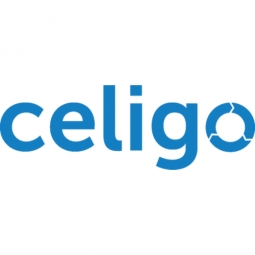Download PDF
Clickstop Streamlines Logistical Operations with Celigo
Technology Category
- Application Infrastructure & Middleware - Data Exchange & Integration
- Application Infrastructure & Middleware - Middleware, SDKs & Libraries
Applicable Industries
- E-Commerce
- Equipment & Machinery
Applicable Functions
- Logistics & Transportation
- Sales & Marketing
Use Cases
- Leasing Finance Automation
- Material Handling Automation
Services
- System Integration
The Challenge
Clickstop, an ecommerce company with a diverse portfolio of brands, was facing a significant challenge in managing its high sales volume and large brand suite. The company had separated their ERP solution (NetSuite) from their front-end platform (Shopify), which required data to move seamlessly between two different systems. However, the integration tool they were using was not up to the task, with issues arising around custom fields and user access. After a year of trying to make the combination of the integration platform and various workarounds function properly, Clickstop decided to return to their previous iPaaS partner, Celigo. The decision was driven by Celigo’s deep NetSuite expertise and the potential to help Clickstop aggressively pursue their four main business goals: achieving their budgeted GPA and expenses, maximizing automation and efficiency, being exceptional internet marketers, and building a great workplace culture.
About The Customer
Clickstop is an ecommerce company based in Urbana, Iowa. The company launched US Cargo Control in 2005, an ecommerce brand focused on trucking and shipping equipment. Since then, Clickstop has grown to a 200-employee company with close to $100M in yearly revenue. Multiple acquisitions have driven this expansion, and today Clickstop encompasses a portfolio of brands across a diverse range of industries. The main brands under their umbrella include EcoFoil, Fasteners Plus, Pepper Joe’s, Clean Laundry, and their original flagship, US Cargo Control. Despite managing such high sales volume and a large brand suite, the Clickstop team is lean, with less than 10 people responsible for all things related to the systems used by both supply chain and e-commerce.
The Solution
Clickstop purchased the Shopify integration from Celigo and set their sights on Amazon and eBay next. They started with 12-14 custom flows and took advantage of Celigo’s support services, which saved them from making time-consuming errors during the initial setup. The team even hired a Celigo system admin within Clickstop and built up their own product knowledge through Celigo University. Clickstop found Celigo to be far more intuitive and less developer-heavy than other tools. The marketing team, in particular, was able to get onboarded quickly and start adding product information on their own. Clickstop also found an unexpected but helpful use for Celigo: powering a custom PDF reader. This initiative helped Clickstop make significant strides toward their goal of maximizing automation and efficiency.
Operational Impact
Quantitative Benefit
Related Case Studies.

Case Study
Smart Water Filtration Systems
Before working with Ayla Networks, Ozner was already using cloud connectivity to identify and solve water-filtration system malfunctions as well as to monitor filter cartridges for replacements.But, in June 2015, Ozner executives talked with Ayla about how the company might further improve its water systems with IoT technology. They liked what they heard from Ayla, but the executives needed to be sure that Ayla’s Agile IoT Platform provided the security and reliability Ozner required.

Case Study
IoT enabled Fleet Management with MindSphere
In view of growing competition, Gämmerler had a strong need to remain competitive via process optimization, reliability and gentle handling of printed products, even at highest press speeds. In addition, a digitalization initiative also included developing a key differentiation via data-driven services offers.

Case Study
Predictive Maintenance for Industrial Chillers
For global leaders in the industrial chiller manufacturing, reliability of the entire production process is of the utmost importance. Chillers are refrigeration systems that produce ice water to provide cooling for a process or industrial application. One of those leaders sought a way to respond to asset performance issues, even before they occur. The intelligence to guarantee maximum reliability of cooling devices is embedded (pre-alarming). A pre-alarming phase means that the cooling device still works, but symptoms may appear, telling manufacturers that a failure is likely to occur in the near future. Chillers who are not internet connected at that moment, provide little insight in this pre-alarming phase.

Case Study
Premium Appliance Producer Innovates with Internet of Everything
Sub-Zero faced the largest product launch in the company’s history:It wanted to launch 60 new products as scheduled while simultaneously opening a new “greenfield” production facility, yet still adhering to stringent quality requirements and manage issues from new supply-chain partners. A the same time, it wanted to increase staff productivity time and collaboration while reducing travel and costs.

Case Study
Integration of PLC with IoT for Bosch Rexroth
The application arises from the need to monitor and anticipate the problems of one or more machines managed by a PLC. These problems, often resulting from the accumulation over time of small discrepancies, require, when they occur, ex post technical operations maintenance.

Case Study
Robot Saves Money and Time for US Custom Molding Company
Injection Technology (Itech) is a custom molder for a variety of clients that require precision plastic parts for such products as electric meter covers, dental appliance cases and spools. With 95 employees operating 23 molding machines in a 30,000 square foot plant, Itech wanted to reduce man hours and increase efficiency.





